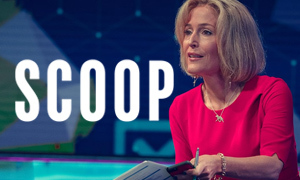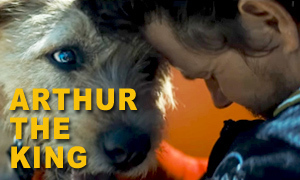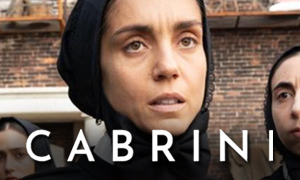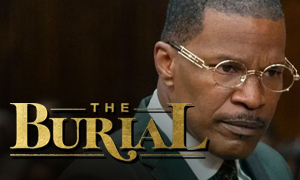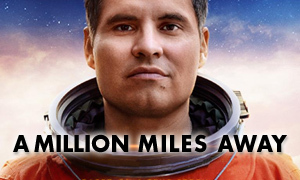Hillbilly Elegy: History vs. Hollywood
Gabriel Basso
Born: December 11, 1994
Birthplace:
St. Louis, Missouri, USA
James David 'J.D.' Vance
Born: August 2, 1984
Birthplace: Middletown, Ohio, USA
Amy Adams
Born: August 20, 1974
Birthplace:
Vicenza, Veneto, Italy
Bev Vance
Born: January 20, 1961
Birthplace: Middletown, Ohio, USA
Glenn Close
Born: March 19, 1947
Birthplace:
Greenwich, Connecticut, USA
Bonnie Blanton (Mamaw)
Born: April 16, 1933
Birthplace: Kentucky, USA
Death: April 24, 2005
Bo Hopkins
Born: February 2, 1942
Birthplace:
Greenville, South Carolina, USA
James Lee Vance (Papaw)
Born: September 22, 1929
Birthplace: Kentucky, USA
Death: October 16, 1997, Middletown, Ohio, USA
Haley Bennett
Born: January 7, 1988
Birthplace:
Fort Myers, Florida, USA
Lindsay Vance
Born: 1980
Birthplace: Middletown, Ohio, USA
Freida Pinto
Born: October 18, 1984
Birthplace:
Bombay, Maharashtra, India
Usha Chilukuri
Born: January 6, 1986
Birthplace: San Diego, California, USA
Did J.D. Vance grow up in Middletown, Ohio?
Yes. When J.D.'s grandparents moved there from a picturesque mountain town in Northern Kentucky, they were leaving behind coal country for the hope of a better life. The Hillbilly Elegy true story reveals that by the time J.D. was born, Middletown's steel mill was no longer thriving and the town was gradually heading toward economic despair.
Did J.D. return home from Yale after his mother overdosed on heroin?
In the movie, J.D. Vance is called home to help his older sister Lindsay with their mother, who had been hospitalized due to a heroin overdose. In the book, J.D. only states that he was unsure how many times his mother ended up in the hospital barely conscious because of some drug. His sister called him toward the end of law school to let him know that his mother had been using heroin and had decided to enter rehab again. He didn't go home until weeks later after graduating law school at Yale and only stated that he worried about Lindsay having to deal with everything on her own while he was hundreds of miles away. He seems to have been less involved in such incidents than his character is in the movie.
In interviews, J.D. has mentioned his mother surviving a heroin overdose. In the book, he goes into detail with regard to friends and other people in the town overdosing.
Did J.D. really risk losing a job at a prestigious law firm by going home to help his drug-addicted mother?
No. In the film, a day before interviewing for a summer associate job that could fund his next semester, J.D. Vance is called home to deal with his mother who has just survived a heroin overdose. As stated in the prior question, in his memoir, Vance does talk about getting a call from his sister Lindsay toward the end of law school at Yale. However, he didn't go home until several weeks later, after graduation. J.D. went home to help get his homeless mother off the street and back on her feet. Him rushing home and potentially losing a law clerk job appears to be fictional.
Did J.D. use four credit cards to pay for his mother to go to rehab?
No. In the movie, the hospital J.D. Vance's mother Bev (Amy Adams) is in is on the verge of kicking her out. In order to pay for a week-long stay in rehab, J.D. puts the bill on four credit cards. He then learns that his mother has no interest in going to rehab. The J.D. Vance true story presented in the book has no mention of him paying for one of his mother's rehab stays. After his Mamaw passes away, he does talk about some of her debt being the result of her paying for her daughter's rehab stays. He alludes to some of his own bad financial decisions and having credit card debt, but not because of his mother. The only mention of his mother taking money from him is when he describes growing up and having to hide cash he had in different places to help prevent his mother from finding it and "borrowing" it.
Did J.D. Vance's mom Bev suffer from a personality disorder?
In the book, J.D. talks about her flipping on a dime like Amy Adam's character does in the movie. She could be a playful, upbeat mama one moment and a raging, out-of-control monster the next. The movie doesn't make clear whether she had a personality disorder prior to becoming an addict, and Vance's memoir seems to attribute most of her changing personality to drug addiction and her ever-changing, often tumultuous relationships.
Is J.D. Vance's mom, Bev, portrayed accurately in the movie?
For the most part, yes. The Hillbilly Elegy true story confirms that Bev Vance married her high school boyfriend and entered into a life beset by fighting, drama, and violence, similar to the dysfunction she had observed in her parents' relationship. She gave birth to J.D.'s sister, Lindsay, at age 19 and filed for divorce that same year. Bev remarried in 1983, this time tying the knot with J.D.'s father, a man named Don Bowman. J.D. was born the following year. His father exited his life when he was in kindergarten.
The next man in J.D. Vance's mother's life was a truck driver named Bob Hamel, whom he describes as a stereotypical hillbilly. J.D. witnessed his mother and Bob engage in verbal abuse, screaming matches, and physical violence (they set ground rules that Bob couldn't hit first). Bev and Bob wracked up a considerable debt on things they didn't need, including new cars and a swimming pool. Bev entered into numerous affairs and turned to drugs and alcohol. They eventually separated. By that time, J.D.'s grades had begun to suffer. He put on weight, was plagued by severe stomachaches, and had trouble sleeping.
Did J.D. Vance have a revolving door of "stepdads" come in and out of his life as a child?
Yes. This is portrayed accurately in the movie, perhaps even downplayed somewhat. The real J.D. Vance says that he had 15 different "stepdads" as a child. This included the different husbands and boyfriends that moved in and out of Bev's life. -Uncommon Knowledge
Did J.D. Vance's mom, Bev, end up in the hospital from a failed suicide attempt?
Yes. In researching Hillbilly Elegy's historical accuracy, we learned that Bev Vance intentionally crashed her brand new minivan into a telephone pole shortly after her husband Bob confronted her about having an affair and demanded a divorce. She had been engaged in a years-long affair with a local fireman. Mamaw had a different theory as to her daughter's reason for crashing the van. She reasoned that Bev fled the house and crashed the van in order to detract attention from her indiscretions and financial woes. "Who tries to kill themselves by crashing a f***ing car?" Mamaw said. "If she wanted to kill herself, I've got plenty of guns." Bev Vance didn't suffer any serious injuries and spent only a couple days in the hospital.
Did J.D. Vance watch his mother Bev get arrested?
Yes. The J.D. Vance true story confirms that he watched his mother be arrested more than once. The most significant of these arrests took place when he was twelve. "I said something, or some conversation topic really ignited her temper," J.D. recalled in an interview with Megyn Kelly, "and then she just sped up, and she just kept on saying, 'I'm just gonna crash this car and kill us both. I'm gonna crash this car and kill us both.'" When she pulled over and started to try and beat him, J.D. jumped out of the car and ran to a nearby house for help. Recognizing he was in distress, the woman who answered called the police. Bev kicked in the woman's door and dragged J.D. out onto the front lawn as he screamed for help.
The police arrived and he watched his mother get hauled away in a police cruiser. "Honestly, I just felt relieved. In that moment, I just felt relieved," recalled J.D., "and I thought to myself, alright, I'm gonna live another day. That's how terrified I was." Sitting in the back of a police car, J.D. waited for his sister Lindsay (pictured below) to arrive and rescue him. The arrest resulted in the family being entered into the system, which meant the start of mandated family counseling and social worker visits. Following Beverly Vance's arrest, J.D. began living with Mamaw off and on.
Did Beverly really go rollerskating through the halls of the hospital where she worked?
In a drug-induced episode in the movie, Beverly Vance (Amy Adams) goes rollerskating through the halls of the hospital where she works as a nurse. The job had given her access to opioids, which she stole from her patients. This incident is taken from J.D. Vance's memoir. In the book, Beverly went Rollerblading through the emergency room at Middletown Hospital. J.D. initially blamed the bizarre behavior on her recent divorce from Bob, only to later realize the role opioids had played. Like in the movie, it's what got her fired from her job as a nurse.
Did J.D. Vance's grandmother step in to help raise him while his mom battled drug addiction?
Yes. When J.D.'s mother, Beverly Vance, was spiraling out of control with addiction, his grandmother (Mamaw), who is portrayed by Glenn Close in the film, stepped in and raised his older sister Lindsay and him. J.D. describes his grandparents as filling in the gaps when his mother was unfit for the role.
Did J.D. end up with a delinquent, pot-smoking stepbrother after his mother married on a whim?
Yes. Like in the Hillbilly Elegy movie, J.D.'s mom Bev would exit one relationship or marriage and quickly enter into another. After ending things with a nice guy named Matt, she almost immediately agreed to marry her boss at the dialysis center where she was working as a nurse. They had only been dating for a week. He was a Korean-born man named Ken and was ten years her senior. He had three children, two boys and a girl. J.D. and his mother moved in with them. It was J.D.'s fourth home in two years.
The oldest boy didn't like Bev and fought with her constantly. J.D. fought with him in defense of her. While he was exploring a small greenhouse, he stumbled upon a nearly full-grown marijuana plant. Later, he experimented with a stash of Ken's weed that Ken's son had found. At the time, J.D., who was 15 and a sophomore in high school, was also drinking alcohol somewhat and had abysmal grades. By that point, his sister Lindsay had entered into a successful marriage and was no longer around for him to lean on. After several months, his grandma (Mamaw) began to realize what was going on, including that his mom was using drugs again. The J.D. Vance true story confirms that Bev showed up asking J.D. for his urine so that she could pass a drug test. It prompted Mamaw to make the decision that J.D. would live with her permanently.
Was J.D. Vance's grandmother instrumental in setting him on a better path in life?
Yes. As we see with Glenn Close's chain-smoking character in the movie, J.D.'s real-life Mamaw helped to straighten him up, get him focused on his studies, and point him in the right direction in life. He went to live with her permanently during his sophomore year of high school. Mamaw also encouraged him to shed the unsavory friends who were dragging him down. When he was 12 and hanging out with a kid who was known to be a local druggie, his grandma found out and told him, "If you don't stop hanging out with that kid, I'm gonna run him over with my car and no one is ever gonna find out." Like in the movie, she indeed almost always had a cigarette hanging out of her mouth.
Mamaw and Papaw encouraged their children and grandchildren to live better lives than they had lived. Like their daughter Bev, they had issues with domestic violence, substance abuse (Papaw's alcoholism), and teen pregnancy. They always hoped that the next generation would do better.
It's worth noting that J.D.'s mother, Bev, had encouraged academics when he was young, having been the salutatorian of her high school class. Bev never went to college, however, because J.D.'s older sister Lindsay was born just weeks after she graduated from high school. Bev later went to a local community college and earned an associate's degree in nursing, paid for by Mamaw.
Is J.D. Vance's girlfriend, Usha, based on a real person?
Yes. Usha (Freida Pinto) is based on J.D.'s real-life girlfriend, Usha Chilukuri, an Indian-American woman who he met while attending Yale Law School. In 2014–15, Usha clerked for then-judge Brett Kavanaugh. She was a law clerk to Supreme Court Chief Justice John Roberts in the 2017–18 term. J.D. and Usha were married in 2014 in Eastern Kentucky. They currently have two sons, Ewan (born in 2017) and an infant.
Did J.D. really not know what utensils to use at a prestigious law firm's dinner that was also an interview?
Yes. He followed Usha's advice to start working from the outside in and to use a separate utensil for each course. In his memoir, he also didn't know that "sparkling" water meant carbonated and complained to the waitress after tasting it. In addition, he didn't know the difference between the various types of white wine, as emphasized in the film.
Was J.D. Vance's grandmother a big fan of Terminator 2: Judgement Day?
Yes. In the movie, Mamaw (Glenn Close) is seen watching Terminator 2: Judgement Day for the umpteenth time. She tells J.D. that everyone in the world falls into one of three categories. A person is either a "good Terminator, a bad Terminator or neutral." In the book, it is J.D., not his grandmother, who talks about feeling like he was being "chased by the bad terminator or protected by the good one." He also talks about his Mamaw's love of the HBO series The Sopranos.
Did J.D. Vance really join the military?
Yes. The Hillbilly Elegy true story confirms that J.D. Vance enlisted in the Marines after graduating high school. He served in Iraq, performing media relations tasks. In his memoir, he talks about his time in the military as being the first time he felt like an adult, largely due to the fact that he could help take care of his family members instead of them taking care of him.
Did a biased Yale professor really imply J.D. wasn't a good fit at Yale by telling him dismissively that there are "plenty of great state schools"?
A somewhat similar thing happens in Vance's memoir. He heard rumors that one of his professors looked down upon Yale Law students who didn't come from prestigious schools like Standford, Harvard, Yale, and Princeton. After turning in a sloppy writing assignment, the professor called one of his paragraphs a "vomit of sentences masquerading as a paragraph." Vance worked to change his professor's mind about Yale Law students who come from state schools. By the end of the semester, the professor referred to Vance's writing as "excellent," even admitting that he might have been wrong about students who come from state schools.
Did Mamaw really set her drunk husband on fire?
In a flashback in the movie, we observe Mamaw (Glenn Close) setting her abusive drunk husband on fire. Papaw is in front of the Christmas tree and "O Holy Night" is playing on the radio. This is taken almost directly from the book. Mamaw warned Papaw that she'd kill him if he ever came home drunk again. After he came home drunk a week later and passed out on the couch, Mamaw got a can of either gasoline or lighter fluid and poured it all over him, lit a match, and dropped it on him. J.D.'s eleven-year-old aunt hurriedly put out the fire and saved his life. Papaw suffered only minor burns.
Did Mamaw say things like "Kiss my ruby-red a**"?
Yes. A Hillbilly Elegy fact check confirms that this is taken straight from J.D. Vance's memoir. He talks about the phrase being part of his grandmother's "trademark vitriol."
Did J.D. Vance's grandmother have her own history of domestic violence?
In the movie, we see this in flashbacks but it is downplayed somewhat in order to paint Glenn Close's character as the movie's moral center. In the book, J.D. writes about the damage that Mamaw and Papaw wrought on their children, including J.D.'s mom Bev. He discusses Papaw's battle with alcoholism and Mamaw's desire to later repair the damage.
Mamaw had been in an abusive relationship herself. In the book, J.D. does not know if Mamaw was abused as a child, but he talks about her desire to help poor, abused, and neglected children. She would buy school supplies and shoes for the neighborhood's poorest children. She even dreamed of becoming a children's attorney. J.D. ponders where these desires came from, wondering if she herself was abused as a child.
J.D. Vance Interviews & Related Videos
Peer deeper into the true story behind Hillbilly Elegy and broaden your understanding of J.D. Vance's life by watching the interviews featured below.
